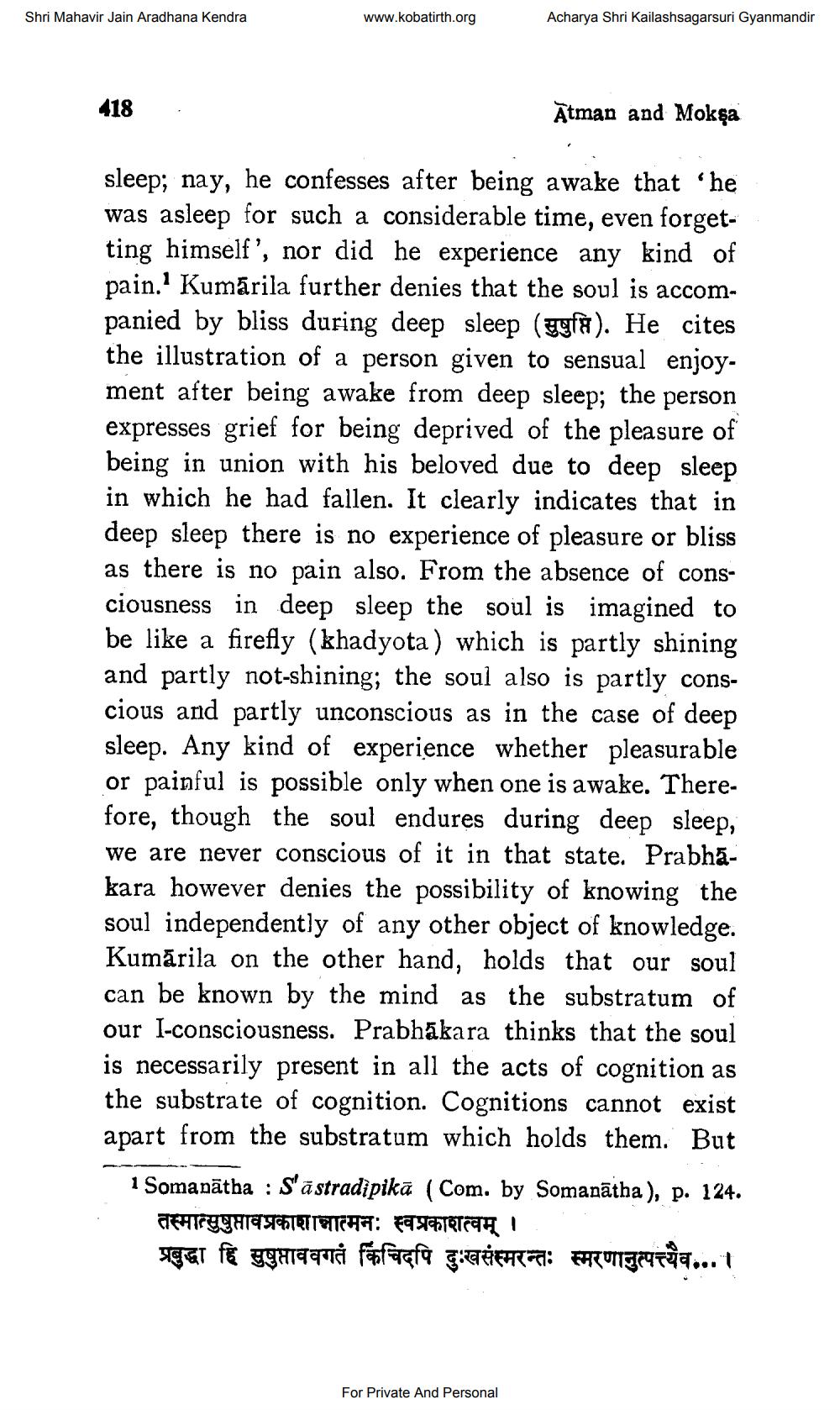________________
Shri Mahavir Jain Aradhana Kendra
www.kobatirth.org
Acharya Shri Kailashsagarsuri Gyanmandir
418
Ātman and Moksa
sleep; nay, he confesses after being awake that 'he was asleep for such a considerable time, even forgetting himself', nor did he experience any kind of pain." Kumarila further denies that the soul is accompanied by bliss during deep sleep (ugfa). He cites the illustration of a person given to sensual enjoyment after being awake from deep sleep; the person expresses grief for being deprived of the pleasure of being in union with his beloved due to deep sleep in which he had fallen. It clearly indicates that in deep sleep there is no experience of pleasure or bliss as there is no pain also. From the absence of consciousness in deep sleep the soul is imagined to be like a firefly (khadyota) which is partly shining and partly not-shining; the soul also is partly conscious and partly unconscious as in the case of deep sleep. Any kind of experience whether pleasurable or painful is possible only when one is awake. Therefore, though the soul endures during deep sleep, we are never conscious of it in that state. Prabhākara however denies the possibility of knowing the soul independently of any other object of knowledge. Kumārila on the other hand, holds that our soul can be known by the mind as the substratum of our I-consciousness. Prabhākara thinks that the soul is necessarily present in all the acts of cognition as the substrate of cognition. Cognitions cannot exist apart from the substratum which holds them. But 1 Somanātha : S'āstradipika (Com. by Somanātha), p. 124.
तस्मात्सुषुप्तावप्रकाशानात्मनः स्वप्रकाशत्वम् । प्रबुद्धा हि सुषुप्ताववगतं किंचिदपि दुःखसंस्मरन्तः स्मरणानुत्पत्त्यैव... ।
For Private And Personal




